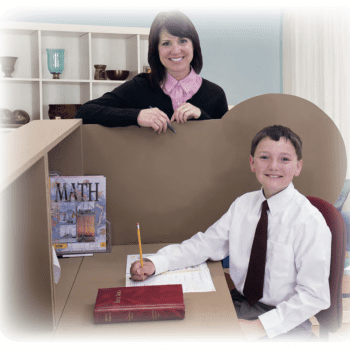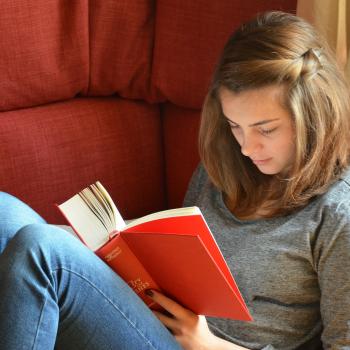My parents didn’t set out to homeschool. The fluke of my birthdate put me either the youngest or the oldest of my class, and after being the youngest in kindergarten my parents decided to homeschool for a year before first grade. That year went so well that they homeschooled for another, then another, reevaluating each year. My mom thoroughly enjoyed the experience and my dad supported it wholeheartedly, though was not often involved in hands-on teaching. I have one younger homeschooled sibling, but I’ll focus on my experience. In 4th grade I started doubting my academic competency due to lack of comparison. I spent a half a year in public school for 5th, and after discovering that I was, indeed, on track academically, begged to come home. We homeschooled through middle school and I entered public high school in 9th grade. I went to a private Christian university and a public university for a master’s and PhD. I’m midway through my PhD.
First, I want to point out some social-location factors that positively frame my homeschooling experience. The big ones include my family’s upper middle class economic status, my parents’ education, our family size (2 kids), large suburban location, and Christian faith. Had those variables been different I would be telling another story.
My mom homeschooled as a Christian but I missed out on the quiverfull/CP, Vision Forum, etc. My parents decided to avoid those circles. There is a family story of going to a homeschooling event where a couple of the other dads talked seriously to my dad (whom they had just met!) about the small size of his quiver. His snarky response was, “Actually, my quiver is full! It’s a two-arrow-holding quiver.” Early on, we used some Bob Jones and Abeka history, but that got ditched, especially as more homeschool resources were made available each year. I got my fair share of gender roles at church, but it wasn’t Christian Patriarchy as such.
I will start with what I see as strengths of my homeschooling experience. First, we were often not at home. We had season passes to the aquarium, the zoo, amusement parks (yep – when other kids were at school!), tickets to anything appropriate for kids at the city’s performing arts center, state parks, library programs, art, science, music camp. Plus, my dad’s work requires travel to cities around the country and we would all go along and tour each city’s historical and cultural landmarks during the day. My parents’ approach was “180 school days per year, distributed as necessary,” so we didn’t follow the public school calendar and continued through summer.
I thrived in self-directed, participatory learning. I’m reading Freire’s Pedagogy of the Oppressed this week and I missed out on what he terms the banking model of education, where the student is an empty account into which the expert teacher makes deposits (till high school and college, at least). In contrast, my mom always talked about how we all learned together. I often participated in setting the agenda, and she provided the resources and helped guide the investigation. It was that way as far back as I remember. Clearly, there was stuff I just had to learn, like cursive and long division. Still, I had the freedom to say if a method wasn’t working and I wanted to try it a different way. I read like a girl possessed, mostly uninterrupted, completely uncensored. If it was at the library or Barnes and Noble, I had access to it. I was well-prepared for honors and AP classes in high school, the SAT, then the honors college, on the GRE, and now in a PhD. No academic regrets.
Socially, I largely avoided some challenges and my parents orchestrated good opportunities to form relationships. I got a very low dose of the girl-on-girl relational violence of adolescence. Given my social location, this was a real threat. Since I was relatively chill during the day I had lots of energy for after school activities. I participated in competitive soccer, Girl Scouts, a children’s chorus, church activities, and community theater. When I did enter public school in 9th grade, it was new and fresh. I didn’t develop senioritis and I wanted to get to know all kinds of people. I didn’t have as many labels to apply to others as my peers did. Also, with our homeschool peers, there was no age hierarchy for building friendships.
There were some things I had to compensate for later. In a word: algebra. Saxon Math was awesome for word problems, critical thinking, and the basics. Except later, I really needed someone to explain how to solve for X and my mom’s skill set didn’t extend there. Math in high school was a battle. That said I am now proficient in statistics, which I am constantly using in my PhD studies. I will never catch up from missing the peer-to-peer sexual education that happens during middle school. For example, I only know, like, four words for semen and I realize there are about a thousand in current use. I don’t consider this a deficiency. I know I miss some social queues.
Transitioning to a 2,300 student high school was a big adjustment. Here’s what was hard: asking permission to go to the bathroom and having requests denied, stopping in response to the bell, even if the algebra question on the board was left unanswered, the sheer noise of the lunchroom, hallways, etc., bomb threats and lockdowns (this was Columbine-era), learning how to respond to different teachers’ expectations and methods, academic competition, watching discrimination happen, being “made” to do stuff by authorities (like fundraise for a new football field house), and the amount of wasted time. I came home really tired each day. That said, I’m so glad I did it. I really enjoyed many of my teachers and the new subjects I took, as well as the friendships I developed. Playing soccer was fantastic, as was my involvement with the FFA.
—————
Homeschooling has become a very polarized subject. It is my hope that the Homeschool Reflections series, made up of stories of actual homeschool experiences, both positive and some negative, may cut through some of the hyperbole. I have asked the respondents in this series to be analytical and to discuss both the pros and cons of their experiences, but I have not censored what they have written. My posting these stories should not be construed as endorsement the opinions expressed therein. What you read in this series will vary, but it is my hope that each installment will be thought provoking and have something positive to offer to the discussion.















